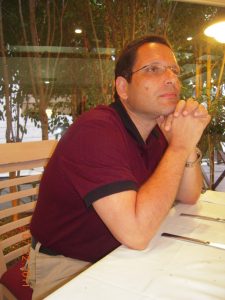| Founding Members
Raphael Cohen-Almagor (D. Phil., Oxon) Oxford University; Professor and Chair of Politics, Founding Director of the Middle East Study Group, University of Hull. Raphael taught, inter alia, at Oxford (UK), Jerusalem, Haifa (Israel), UCLA, Johns Hopkins (USA) and Nirma University (India). He was also Senior Fellow at the Woodrow Wilson International Center for Scholars, Washington DC, and Distinguished Visiting Professor, Faculty of Laws, University College London. Raphael has published extensively in the fields of politics, philosophy, media ethics, medical ethics, law, sociology and history, including most recently Confronting the Internet’s Dark Side (2015) and Just, Reasonable Multiculturalism (forthcoming), both by Cambridge University Press. In June 2025, Professor Cohen-Almagor has left the University of Hull. He can be reached at almagor35@gmail.com | |
| https://orcid.org/0000-0002-5869-9243 | |
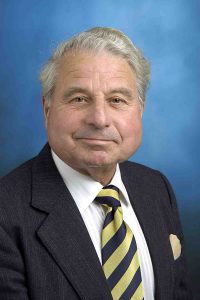 As Director of International Legal Research in the Centre for Legislative Studies, Professor Jo Carby-Hall coordinates research and publication programmes and collaboration agreements worldwide. He is an acknowledged authority on British, European and international social law and Maritime Law. His works have been translated into eight languages. He is legal adviser to national and international organisations and governments. In recognition for his work in Poland, he was awarded three State Orders from various Presidents. He also received a British State Order from H.M The Queen. He is Honorary Consul at the Polish Consulate and its Branch for Scientific and Educational Co-operation As Director of International Legal Research in the Centre for Legislative Studies, Professor Jo Carby-Hall coordinates research and publication programmes and collaboration agreements worldwide. He is an acknowledged authority on British, European and international social law and Maritime Law. His works have been translated into eight languages. He is legal adviser to national and international organisations and governments. In recognition for his work in Poland, he was awarded three State Orders from various Presidents. He also received a British State Order from H.M The Queen. He is Honorary Consul at the Polish Consulate and its Branch for Scientific and Educational Co-operation | |
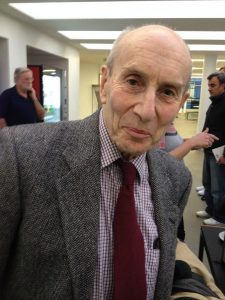 John Friend is Emeritus Professor of Plant Biology and Head of Department from 1969 at the University of Hull where he was Dean of the Science for 2 years and Science PVC for 3 years. He was a visiting Professor in the Botany Department of Hebrew University of Jerusalem. His main Israeli research collaborator was Professor Alfred (Abraham Max) Mayer. Their main collaboration was on biochemistry of plant diseases. John was also the first chairman of ASGIME, the Academic Study Group on Israel and the Middle East. ASGIME organised visits of British academics to Israel and invited many visiting Israeli academics in the UK to lecture in Hull. John Friend is Emeritus Professor of Plant Biology and Head of Department from 1969 at the University of Hull where he was Dean of the Science for 2 years and Science PVC for 3 years. He was a visiting Professor in the Botany Department of Hebrew University of Jerusalem. His main Israeli research collaborator was Professor Alfred (Abraham Max) Mayer. Their main collaboration was on biochemistry of plant diseases. John was also the first chairman of ASGIME, the Academic Study Group on Israel and the Middle East. ASGIME organised visits of British academics to Israel and invited many visiting Israeli academics in the UK to lecture in Hull.John died of COVID on 6 December 2020. | |
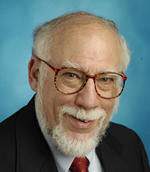 Professor Gary Edles is in his second career. For 28 years he was a senior civil servant and lawyer with four U.S. government agencies. Upon retirement, he was named a Fellow in Administrative Law and Adjunct Professor of Law at American University Washington College of Law, Washington, D.C., and, after moving to Yorkshire with his wife in 1997, also became a permanent Visiting Professor at the University of Hull Law School. He holds both Masters and Doctorate degrees, is licensed as a lawyer in the United States, and is listed in Who’s Who in America and Who’s Who in American Law. He is co-author of two books and more than a dozen journal articles. Professor Gary Edles is in his second career. For 28 years he was a senior civil servant and lawyer with four U.S. government agencies. Upon retirement, he was named a Fellow in Administrative Law and Adjunct Professor of Law at American University Washington College of Law, Washington, D.C., and, after moving to Yorkshire with his wife in 1997, also became a permanent Visiting Professor at the University of Hull Law School. He holds both Masters and Doctorate degrees, is licensed as a lawyer in the United States, and is listed in Who’s Who in America and Who’s Who in American Law. He is co-author of two books and more than a dozen journal articles. |
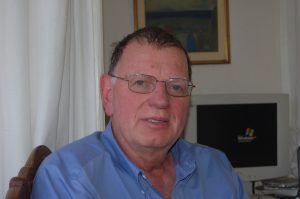 Richard Collin is an American who has spent much of his life in Great Britain, Richard Oliver Collin first visited the Middle East as a US Government employee, travelling to most of the countries in the region. After studying Middle Eastern history at Harvard, he completed his doctorate in politics at Oxford University. Having served as a visiting professor at the University of Maryland, Queens University, Belfast, and University College Northampton, he is now Distinguished Professor Emeritus at Coastal Carolina University in the United States. His current research interest is the role of languages in international politics. Richard lives with his wife, Thea, in Beverley, East Yorkshire.
Richard Collin is an American who has spent much of his life in Great Britain, Richard Oliver Collin first visited the Middle East as a US Government employee, travelling to most of the countries in the region. After studying Middle Eastern history at Harvard, he completed his doctorate in politics at Oxford University. Having served as a visiting professor at the University of Maryland, Queens University, Belfast, and University College Northampton, he is now Distinguished Professor Emeritus at Coastal Carolina University in the United States. His current research interest is the role of languages in international politics. Richard lives with his wife, Thea, in Beverley, East Yorkshire.
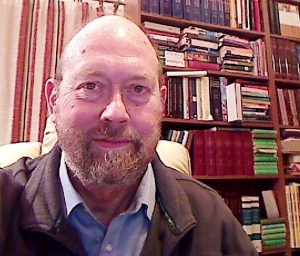 Lester L. Grabbe is Emeritus Professor of Hebrew Bible and Early Judaism at the University of Hull. His main interest is in the history of ancient Israel and of the Jews in the Second Temple period. He founded the European Seminar on Methodology in Israel’s History, which met for 17 years, and published the proceedings in the series, European Seminar in Historical Methodology (Bloomsbury T & T Clark). He is also series editor of the T & T Clark International monographs, Library of Second Temple Studies. He recently completed a four-volume History of the Jews and Judaism in the Second Temple Period, covering the 700 years of the Jewish people in the Persian, Greek, and early Roman periods. His latest book is his 19th authored volume, entitled the Dawn of Israel: A History of Canaan in the Second Millennium BCE; in addition, he has written 150 scholarly papers for refereed journals and essay collections and has edited or co-edited a total of 21 volumes. Lester translated the Greek text of 2 Maccabees for the Common English Bible.
Lester L. Grabbe is Emeritus Professor of Hebrew Bible and Early Judaism at the University of Hull. His main interest is in the history of ancient Israel and of the Jews in the Second Temple period. He founded the European Seminar on Methodology in Israel’s History, which met for 17 years, and published the proceedings in the series, European Seminar in Historical Methodology (Bloomsbury T & T Clark). He is also series editor of the T & T Clark International monographs, Library of Second Temple Studies. He recently completed a four-volume History of the Jews and Judaism in the Second Temple Period, covering the 700 years of the Jewish people in the Persian, Greek, and early Roman periods. His latest book is his 19th authored volume, entitled the Dawn of Israel: A History of Canaan in the Second Millennium BCE; in addition, he has written 150 scholarly papers for refereed journals and essay collections and has edited or co-edited a total of 21 volumes. Lester translated the Greek text of 2 Maccabees for the Common English Bible.
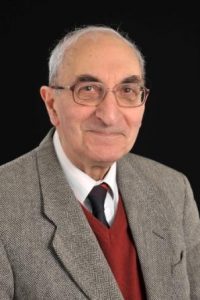
Professor Jack Hayward was an Emeritus Professor of Politics, Oxford University, and Research Professor of Politics in Hull, where he taught from 1973 until 1992. He has published mainly on France and on the EU, including edited books are Regression: The Withering of the Welfare State and European Disunion – Between Sovereignty and Solidarity.
Jack was one of the founders of MESG. He died at his home on 8 December 2017.
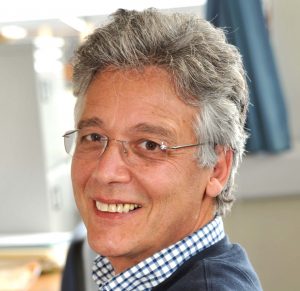 Irving Kirsch is Associate Director of the Program in Placebo Studies at the Harvard Medical School, lecturer in medicine at Beth Israel Deaconess Medical Center, Professor of Psychology at the University of Plymouth (UK), and Professor Emeritus at the University of Hull and the University of Connecticut. He has published 10 books and more than 200 scientific journal articles and book chapters on placebo effects, antidepressant medication, hypnosis, and suggestion. He originated the concept of response expectancy. His meta-analyses on the efficacy of antidepressants were covered extensively in the international media and influenced official guidelines for the treatment of depression in the United Kingdom. His book, The Emperor’s New Drugs: Exploding the Antidepressant Myth, which has been published in English, French, and Japanese, was shortlisted for the prestigious Mind Book of the Year award. It was the topic of a 5-page cover story in Newsweek, and was favourably reviewed in the New York Review of Books by Marcia Angell, former editor-in-chief of the New England Journal of Medicine. It is currently being translated into Italian and Turkish.
Irving Kirsch is Associate Director of the Program in Placebo Studies at the Harvard Medical School, lecturer in medicine at Beth Israel Deaconess Medical Center, Professor of Psychology at the University of Plymouth (UK), and Professor Emeritus at the University of Hull and the University of Connecticut. He has published 10 books and more than 200 scientific journal articles and book chapters on placebo effects, antidepressant medication, hypnosis, and suggestion. He originated the concept of response expectancy. His meta-analyses on the efficacy of antidepressants were covered extensively in the international media and influenced official guidelines for the treatment of depression in the United Kingdom. His book, The Emperor’s New Drugs: Exploding the Antidepressant Myth, which has been published in English, French, and Japanese, was shortlisted for the prestigious Mind Book of the Year award. It was the topic of a 5-page cover story in Newsweek, and was favourably reviewed in the New York Review of Books by Marcia Angell, former editor-in-chief of the New England Journal of Medicine. It is currently being translated into Italian and Turkish.
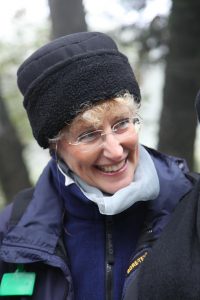 Giuliana Mazzoni is Professor of Psychology at the University of Hull, UK. Her main area of investigation is memory, with a special interest in memory distortions and the effect of suggestion on memory. Her research also investigates autobiographical memory and the effect of suggestion on different types of health-related behaviours. She is the author of more than 100 papers, 8 books and 31 book chapters. Her work has been featured in Science and in many national and international media.
Giuliana Mazzoni is Professor of Psychology at the University of Hull, UK. Her main area of investigation is memory, with a special interest in memory distortions and the effect of suggestion on memory. Her research also investigates autobiographical memory and the effect of suggestion on different types of health-related behaviours. She is the author of more than 100 papers, 8 books and 31 book chapters. Her work has been featured in Science and in many national and international media.
Affiliated Members (Hull):
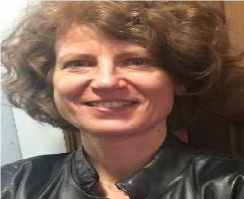 Dr Marianne Afanassieva, Business
Dr Marianne Afanassieva, Business
Dr Marianne Afanassieva is Head of Organisational Behaviour and HRM Department/Subject Group. With a background in Political Economy and Economics Marianne is interested in new institutional approaches, economic sociology, issues of trust and networks. Her current research is focused on new institutional approaches to the operation of organisations in the creative/cultural industries with special attention to theatres and the performing arts. Another current line of research is within the Talent management field in relation to emerging sectors and SMEs. Continuing interest is maintained in inter-organisational networks and trust in the context of transition economies; regional development, gender and economic transition.
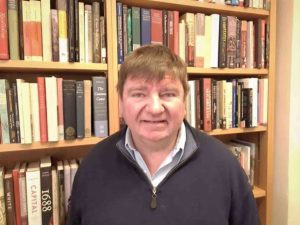
Trevor Burnard is Wilberforce Professor of Slavery and Emancipation at the University of Hull and Director of the Wilberforce Institute. He is a specialist in the Atlantic World and slavery in plantation societies. He is the author of Only Connect: A Field Report on Early American History (Virginia, forthcoming); Jamaica in the Age of Revolution (2020) and The Atlantic World, 1492-1830 (2020). He recently curated a special forum in the journal, Slavery and Abolition on Black Lives Matter and Slavery. He is a member of the senior management board of the Modern Slavery Policy and Evidence Centre.
Dr Phil Bielby, Law
Professor Glenn Burgess, History
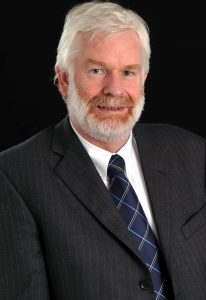
Glenn Burgess is Professor of History at the University of Hull, where he has also served as Deputy Vice-Chancellor 2014-2019. He was educated at the Victoria University of Wellington, New Zealand, and the University of Cambridge. Professor Burgess has written extensively on the history of 16th and 17th century political thought and has just finished a book on George Orwell and intellectual freedom.
 Dr Bhumitra Chakma, Politics
Dr Bhumitra Chakma, Politics
Professor James Connelly, Politics (emeritus)
Professor David Drewry, former VC (emeritus)
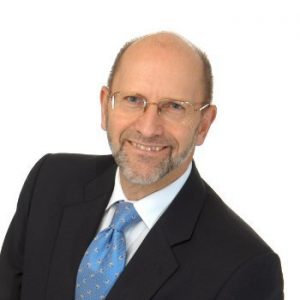
David Drewry served as Vice-Chancellor of Hull University (1999-2009). He is Honorary Fellow at Emmanuel College, Cambridge University from which he holds a Doctorate in Geophysics, and where he was previously Director of the Scott Polar Research Institute. He has honorary professorships at London University and Xiamen University, China. David is Trustee Emeritus of the Natural History Museum, was previously Director of the British Antarctic Survey, Vice-President of the European University Association and a member of the UN’s Intergovernmental Panel on Climate Change. David has been awarded the Patron’s Gold Medal of the Royal Geographical Society, the Prix de la Belgica Gold Medal of the Royal Academy of Belgium, the Polar Medal, the United States Antarctic Service Medal and several honorary degrees from British and overseas universities. He has a mountain and a glacier named after him in Antarctica.
Professor Tom Lundmark, Law
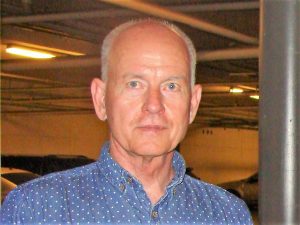 Professor Thomas Lundmark, emeritus professor of Common Law and Comparative Legal Theory, University of Münster, has held the HK Bevan Chair in Law at the University Hull since 2014. After practicing law and teaching as an adjunct professor in San Diego, he spent three years (1991-1994) as a Fulbright Senior Professor in Germany, and two years (2016-2017) as a part-time professor of law at the University of Southern Denmark. Lundmark studied at San Diego State U (AB), Uppsala U, UC Berkeley (JD), Freiburg U (Fulbright Scholar), and Bonn U (Dr jur). He is the author of over 100 articles and of 18 books. His third book published by OUP, Universals in Legal Reasoning, will be published in 2021.
Professor Thomas Lundmark, emeritus professor of Common Law and Comparative Legal Theory, University of Münster, has held the HK Bevan Chair in Law at the University Hull since 2014. After practicing law and teaching as an adjunct professor in San Diego, he spent three years (1991-1994) as a Fulbright Senior Professor in Germany, and two years (2016-2017) as a part-time professor of law at the University of Southern Denmark. Lundmark studied at San Diego State U (AB), Uppsala U, UC Berkeley (JD), Freiburg U (Fulbright Scholar), and Bonn U (Dr jur). He is the author of over 100 articles and of 18 books. His third book published by OUP, Universals in Legal Reasoning, will be published in 2021.
Professor Gerald Midgley, Business
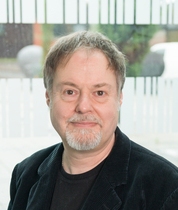
Gerald Midgley is Professor of Systems Thinking in the Centre for Systems Studies, Faculty of Business, Law and Politics, University of Hull, UK. He also holds Adjunct Professorships at Linnaeus University, Sweden; the University of Queensland, Australia; the University of Canterbury, New Zealand; Mälardalen University, Sweden; and Victoria University of Wellington, New Zealand. He has held research leadership roles in both academia and government, having spent ten years as Director of the Centre for Systems Studies at Hull, and seven years as a Senior Science Leader in the Institute for Environmental Science and Research (ESR), New Zealand. Gerald has written over 300 papers for academics and practitioners on systems thinking and community operational research, and has been involved in a wide variety of public sector, community development, health service, technology foresight and resource management projects. He was the 2013/14 President of the International Society for the Systems Sciences, and has written or edited 11 books. These include: Systemic Intervention: Philosophy, Methodology, and Practice (Kluwer, 2000); Systems Thinking, Volumes I-IV (Sage, 2003); Community Operational Research: OR and Systems Thinking for Community Development (Kluwer, 2004); and Forensic DNA Evidence on Trial: Science and Uncertainty in the Courtroom (Emergent, 2011). Gerald is also the editor of a Systems Thinking book series for Routledge, with the first two titles released in 2020, and his forthcoming Routledge Handbook of Systems Thinking will be published in 2021.
Lord Professor Bhikhu Parekh, House of Lords
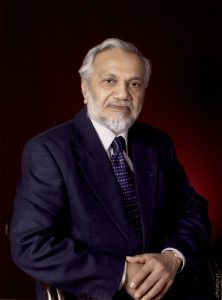 Educated at the Universities of Bombay and London, Lord Bhikhu Parekh is a fellow of the Royal Society of Arts and of the Academy of the Learned Societies for Social Sciences and a Professor of Political Philosophy at the University of Westminster. Lord Parekh was chair of the Runnymede Commission on the Future of Multi-Ethnic Britain(1998-2000), whose report, The Future of Multi-Ethnic Britain, was published in 2000. He is vice-chairman of the Gandhi Foundation, a trustee of the Anne Frank Educational Trust, and a member of the National Commission on Equal Opportunity.
Educated at the Universities of Bombay and London, Lord Bhikhu Parekh is a fellow of the Royal Society of Arts and of the Academy of the Learned Societies for Social Sciences and a Professor of Political Philosophy at the University of Westminster. Lord Parekh was chair of the Runnymede Commission on the Future of Multi-Ethnic Britain(1998-2000), whose report, The Future of Multi-Ethnic Britain, was published in 2000. He is vice-chairman of the Gandhi Foundation, a trustee of the Anne Frank Educational Trust, and a member of the National Commission on Equal Opportunity.
His main academic interests include political philosophy, the history of political thought, social theory, ancient and modern Indian political thought, and the philosophy of ethnic relations.
Professor Valery Sanders, English
Rosalyn Schofield, Council Member, University of Hull
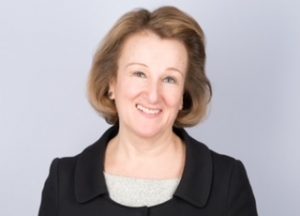 Rosalyn Schofield is a solicitor and a member of the Adaptation Committee, an advisory Non-Departmental Public Body created under the Climate Change Act (2008). It is part of the Climate Change Committee (CCC).
Rosalyn Schofield is a solicitor and a member of the Adaptation Committee, an advisory Non-Departmental Public Body created under the Climate Change Act (2008). It is part of the Climate Change Committee (CCC).
She was Director of Company Secretariat at Associated British Foods plc, where she had global responsibility for leading and reporting on the environmental sustainability and impact of its businesses. Rosalyn is also a Council Member of the University of Hull and Chair of the Audit and Risk Committee there as well as at the Climate Change Committee.
She has previously worked as Legal Director at JD Wetherspoon plc and was a commercial property lawyer in private practice.
Professor Niaz A. Shah, Law
Professor Simon Smith, Department of History
Councillor Helena Spencer, former Hull Mayoress
Mr Ahmed Zaky, Business
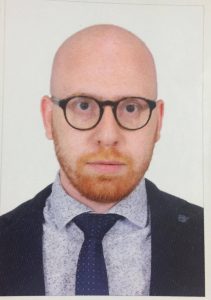 Ahmed Zaky, MSc, is a Ph.D. student in the Hull University Business School and an Assistant Lecturer in the Department of Business Administration, Cairo University. He is also a member of the Faculty Ethics Committee. His current research interests include exploring deviant consumer behaviour in C2C and B2C alike. In particular, understanding the behaviours of dark tourists, the (co)constructing of the place, organisations’ way of marketing and attracting consumers for challenging products and services, and consumers’ emotional experiences preceding the consumption process. Ahmed is also interested in Middle East and North Africa (MENA) region politics following the so-called Arab Spring and the ensued shift of powers and economy.
Ahmed Zaky, MSc, is a Ph.D. student in the Hull University Business School and an Assistant Lecturer in the Department of Business Administration, Cairo University. He is also a member of the Faculty Ethics Committee. His current research interests include exploring deviant consumer behaviour in C2C and B2C alike. In particular, understanding the behaviours of dark tourists, the (co)constructing of the place, organisations’ way of marketing and attracting consumers for challenging products and services, and consumers’ emotional experiences preceding the consumption process. Ahmed is also interested in Middle East and North Africa (MENA) region politics following the so-called Arab Spring and the ensued shift of powers and economy.
Affiliated Members (National and International):
Professor Karin Aggestam, Lund University
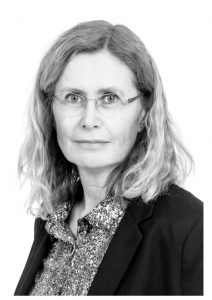 Karin Aggestam is professor of political science. She is currently the director of the Centre for Advanced Middle Eastern Studies (CMES) and scientific coordinator of the Strategic Research Area: Middle East in the Contemporary World at Lund University. She is also honorary professor at University of Queensland, adjunct professor at Monash University, Australia, and regional editor of European Journal of International Security. She held the Samuel Pufendorf endowed chair 2016-2020 and was the former director of peace & conflict studies 2005-2014 at Lund University. Karin’s research interests are focused on peace diplomacy, conflict analysis, gender, foreign policy, negotiation/mediation and the Israeli-Palestinian conflict. She has published nine books, numerous international journal articles and book chapters as well as many contributions to Handbooks on Peaceful Change in International Relations, Conflict Resolution, Diplomacy, Environmental Peacebuilding, Women, Peace, Security, Political Psychology and Middle East Security. Personal website
Karin Aggestam is professor of political science. She is currently the director of the Centre for Advanced Middle Eastern Studies (CMES) and scientific coordinator of the Strategic Research Area: Middle East in the Contemporary World at Lund University. She is also honorary professor at University of Queensland, adjunct professor at Monash University, Australia, and regional editor of European Journal of International Security. She held the Samuel Pufendorf endowed chair 2016-2020 and was the former director of peace & conflict studies 2005-2014 at Lund University. Karin’s research interests are focused on peace diplomacy, conflict analysis, gender, foreign policy, negotiation/mediation and the Israeli-Palestinian conflict. She has published nine books, numerous international journal articles and book chapters as well as many contributions to Handbooks on Peaceful Change in International Relations, Conflict Resolution, Diplomacy, Environmental Peacebuilding, Women, Peace, Security, Political Psychology and Middle East Security. Personal website
Jon Allen, Munk School of Global Affairs and Public Policy, University of Toronto
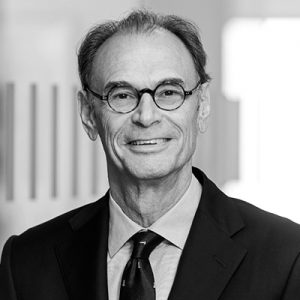
Jon joined the Canadian Department of External Affairs in 1981. In addition to postings abroad in Mexico City (1983-85), New Delhi (1989-92) and Washington (1997-2001), Mr. Allen spent his early career in the Legal Bureau of the Department representing Canada in disputes under the Canada-US Free Trade Agreement and working in the areas of human rights, humanitarian and environmental law. He also held the positions of Director General, North America Bureau (2001-2004) and Minister (Political Affairs) at the Canadian Embassy in Washington (2004-2006). As Assistant Deputy Minister, Americas (2010-2012), he managed Canada’s relations with North America, Latin America and the Caribbean. From 2006 to 2010, Mr. Allen was Canada’s Ambassador to Israel. From 2012 to 2016 he was Ambassador to Spain and Andorra. From December 2012 to July 2014, he was Chargé d’affaires a.i. to the Holy See.
Dr Yossi Belin, Tel Aviv
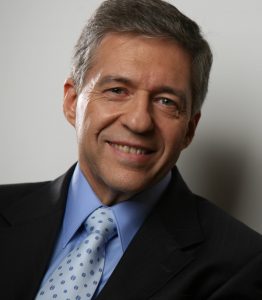
Dr Yossi Beilin received his PhD from Tel Aviv University in 1981. He was Chairman of the Meretz-Yachad Party (March 2004 – March 2008), Minister of Justice (1999 – 2001), Minister of Religious Affairs (2000 – 2001), Minister in the Office of the Prime Minister (1995-1996), Minister of Economy and Planning (1995), Deputy Foreign Minister (1992 – 1995), Deputy Finance Minister (1988 – 1990), Director General of the Foreign Ministry (1986 – 1988), and Cabinet Secretary (1984 – 1986). He is the initiator of the Oslo peace process (1993). He is now Founder, Chairman of the Board, and President of Beilink International Affairs Ltd., an international consulting firm; Chairman, The Steering Committee of H. L. Education for Peace (The Geneva Initiative, Israel), and Chairman, Hillel Students Organization, Israel. Dr Beilin is the author of: The Path to Geneva: The Quest for a Permanent Agreement, 2004; From Hachula to Geneva, 2004; Manual for a Wounded Dove, 2001; His Brother’s Keeper, 2000; From Socialism to Social Liberalism, 1999; The Manual for Leaving Lebanon, 1998; Touching Peace, 1997; Israel: A Concise Political History, 1992; The Roots of Israeli Industry, 1987; The Price of Unity, 1985; Sons in the Shadow of Their Fathers, 1984. He is married to Daniela, and has two sons, three granddaughters and two grandsons.
Professor Ariel L. Bendor, Faculty of Law, Bar-Ilan University, Israel
 Ariel L. Bendor is the Frank Church Professor of Legal Research at Bar-Ilan University. He serves as Academic Head of the Legal Clinics Unit and Head of the Center for Media and the Law Served as Dean of the School of Graduate Studies (2016-2020). Before joining Bar-Ilan, served as Dean of Law (2002-2005) and Dean of Students (2005-2007) at the University of Haifa. Over the years he had visiting positions at Yale, University of Maryland and Osgoode Hall law schools. He specializes in constitutional and administrative Law. He is the author of two books and the editor of three others, and the author of about a hundred articles. His books and articles were cited by the Supreme Court of Israel in dozens of decisions.
Ariel L. Bendor is the Frank Church Professor of Legal Research at Bar-Ilan University. He serves as Academic Head of the Legal Clinics Unit and Head of the Center for Media and the Law Served as Dean of the School of Graduate Studies (2016-2020). Before joining Bar-Ilan, served as Dean of Law (2002-2005) and Dean of Students (2005-2007) at the University of Haifa. Over the years he had visiting positions at Yale, University of Maryland and Osgoode Hall law schools. He specializes in constitutional and administrative Law. He is the author of two books and the editor of three others, and the author of about a hundred articles. His books and articles were cited by the Supreme Court of Israel in dozens of decisions.
Dr AIan Brener, UCL Faculty of Laws
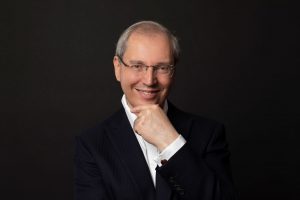 Alan Brener is a lecturer at University College London’s Laws Faculty and he is also Deputy Director of the Faculty’s Centre for Ethics and Law.
Alan Brener is a lecturer at University College London’s Laws Faculty and he is also Deputy Director of the Faculty’s Centre for Ethics and Law.
Besides his LLM from UCL and PhD from Queen Mary University London he is also a qualified Chartered Accountant and member of the Institute of Chartered Accountants in England and Wales. Prior to starting his PhD Alan worked for Santander UK and was responsible, at different times, for the compliance and retail legal departments and regulatory policy. Before joining
Santander in 2005, from 1996, he headed the compliance departments for the retail banking divisions of Natwest and RBS banks. From 1989 to 1996 Alan was a senior prudential and conduct of business regulator for the insurance and collective investments sectors having previously worked on aspects of public policy at the Department of Trade and Industry. Most recently, prior to starting his PhD, Alan was on secondment from Santander helping to set up the Banking Standards Board with the objective of improving standards of conduct and professionalism within the banking industry.
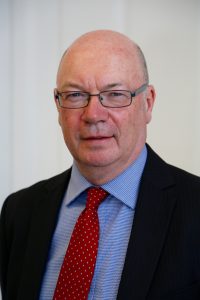
Rt Hon. Alistair Burt was an MP for thirty-two years, retiring in 2019. During his ministerial career he served in the FCO as Parliamentary Under Secretary for the Middle East and North Africa, South Asia and North America between 2010-2013, and as Minister of State for the Middle East and North Africa between 2017-2019, combining the role as Minister of State, DFID during the same period. He was appointed as the UK Commissioner to the International Commission on Missing Persons (ICMP) in 2013. He is now a Distinguished Fellow of RUSI, and is on the Council of the European Council for Foreign Relations. He is also currently Chair of the friendship group between the UAE and the UK, and Pro-Chancellor of Lancaster University.
 Dr Emile Chabal, School of History, University of Edinburgh
Dr Emile Chabal, School of History, University of Edinburgh
Professor Naomi Chazan, Jerusalem
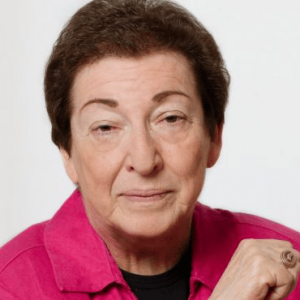
Naomi Chazan is professor emerita of political science and African studies at the Hebrew University of Jerusalem. Together with Prof. Hanna Herzog, she established the Center for the Advancement of Women in the Public Sphere (WIPS) at the Van Leer Jerusalem Institute in 2009, where she has been a research fellow since.
Naomi Chazan holds B.A. and M.A. degrees from Columbia University and a Ph.D. from the Hebrew University of Jerusalem. She served as chair of the Truman Research Institute for the Advancement of Peace at the Hebrew University of Jerusalem, was a visiting professor of Government at Harvard University and the University of Chicago, a research fellow at the Weatherhead Center for International Affairs at Harvard, and a research fellow at the Center for International Studies at MIT.
Prof. Chazan served as a Member of the Knesset for three terms (1992-2003) on behalf of the Meretz party. She was Deputy Speaker of the Knesset and a member of numerous committees: Foreign Affairs and Defense, Education, Economics, Immigration and Absorption, and the Advancement of the Status of Women.
Naomi Chazan was one of the founders of the Israel Women’s Network and is also active in a variety of women’s, human rights, and peace organizations. She served as the President of the New Israel Fund (2009-2012) and is a member of its international board.
She has written and edited many books on comparative politics and has published numerous articles on African politics, the Israeli-Arab conflict, politics in Israel, and the status of women.
Sir Richard Dalton, Former Ambassador, Yorkshire
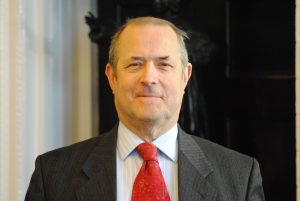 Sir Richard was a British diplomat from 1970 to 20006. From 1993-1997 he was UK Consul General in Jerusalem, responsible for dealings with the Palestinian Authority after the signing of the Oslo Accords. He re-established UK diplomatic relations with Libya in 1999 as the first Ambassador to Tripoli for 17 years. From 2002-2006 he was UK Ambassador in Tehran, playing a part in European negotiations with Iran. He co-wrote the Chatham House Research Paper of September 2014: “Iran’s Nuclear Future”.
Sir Richard was a British diplomat from 1970 to 20006. From 1993-1997 he was UK Consul General in Jerusalem, responsible for dealings with the Palestinian Authority after the signing of the Oslo Accords. He re-established UK diplomatic relations with Libya in 1999 as the first Ambassador to Tripoli for 17 years. From 2002-2006 he was UK Ambassador in Tehran, playing a part in European negotiations with Iran. He co-wrote the Chatham House Research Paper of September 2014: “Iran’s Nuclear Future”.
Professor Peter Decherney, University of Pennsylvania
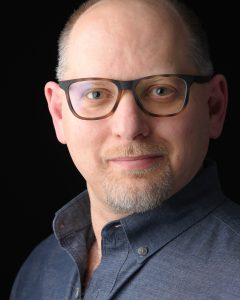
Peter Decherney is Professor of Cinema & Media Studies at the University of Pennsylvania. His books include Hollywood’s Copyright Wars: From Edison to the Internet and Hollywood: A Very Short Introduction. He is also an award-winning documentary and virtual reality filmmaker. Most recently, he co-directed Dreaming of Jerusalem, about the Jewish community in northern Ethiopia. Prof. Decherney has been an Academy of Motion Picture Arts and Sciences Scholar, a fellow of the American Council of Learned Societies, and a U.S. State Department Arts Envoy to Myanmar. He is an award-winning teacher, whose open online course on the history of Hollywood has enrolled over 60,000 learners. More at decherney.org
Dr Sophia Dingli, School of Social & Political Sciences, University of Glasgow
Professor Donna Robinson Divine, Morningstar Family Professor of Jewish Studies and Professor of Government (Emerita), Department of Government, Smith College, USA
Professor Alan Dowty
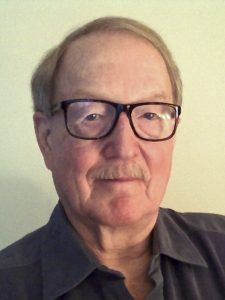 Alan Dowty is Professor Emeritus of Political Science at the University of Notre Dame. He is a graduate of Shimer College and the University of Chicago, where he received his Ph.D in 1963. In 1963-1975 he was on the faculty of the Hebrew University in Jerusalem, during which time he served as Chair of the Department of International Relations. Since 1975 he has been based at the University of Notre Dame. He retired at Notre Dame in 2004; in 2003-2006 he was the first holder of the Kahanoff Chair in Israel Studies at the University of Calgary, and in 2005-2007 he was President of the Association for Israel Studies. He has published seven books and over 130 articles on the Middle East, U.S. foreign policy, and international relations; among the books are The Limits of American Isolation, Middle East Crisis: U.S. Decision Making in 1958, 1970, and 1973, The Jewish State: A Century Later, and Israel/Palestine, now in its third edition. He has delivered over 500 public lectures in 20 countries.
Alan Dowty is Professor Emeritus of Political Science at the University of Notre Dame. He is a graduate of Shimer College and the University of Chicago, where he received his Ph.D in 1963. In 1963-1975 he was on the faculty of the Hebrew University in Jerusalem, during which time he served as Chair of the Department of International Relations. Since 1975 he has been based at the University of Notre Dame. He retired at Notre Dame in 2004; in 2003-2006 he was the first holder of the Kahanoff Chair in Israel Studies at the University of Calgary, and in 2005-2007 he was President of the Association for Israel Studies. He has published seven books and over 130 articles on the Middle East, U.S. foreign policy, and international relations; among the books are The Limits of American Isolation, Middle East Crisis: U.S. Decision Making in 1958, 1970, and 1973, The Jewish State: A Century Later, and Israel/Palestine, now in its third edition. He has delivered over 500 public lectures in 20 countries.
Dr Jacob Eriksson, Department of Politics, York University
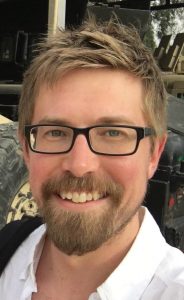 Dr Jacob Eriksson is Lecturer in Post-war Recovery Studies in the Department of Politics at the University of York. Jacob’s research focuses on conflict, conflict resolution, and peacebuilding in the Middle East. His first book, Small-state Mediation in International Conflicts: Diplomacy and Negotiation in Israel-Palestine was published by IB Tauris in 2015. He is the editor, together with Dr Ahmed Khaleel, of Iraq after ISIS: The challenges of post-war recovery, published by Palgrave in 2019.
Dr Jacob Eriksson is Lecturer in Post-war Recovery Studies in the Department of Politics at the University of York. Jacob’s research focuses on conflict, conflict resolution, and peacebuilding in the Middle East. His first book, Small-state Mediation in International Conflicts: Diplomacy and Negotiation in Israel-Palestine was published by IB Tauris in 2015. He is the editor, together with Dr Ahmed Khaleel, of Iraq after ISIS: The challenges of post-war recovery, published by Palgrave in 2019.
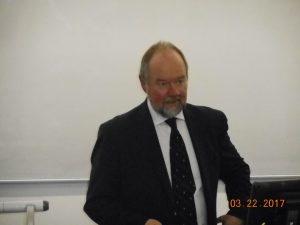 Sir Vincent Fean
Sir Vincent Fean
Born in Burnley, Lancashire, in 1952, Vincent Fean joined the Diplomatic Service straight from Sheffield University, where he studied French and German. He learned Arabic in Britain and Lebanon thanks to the Foreign Office, and was posted to Iraq, Syria, Brussels (EU), France, Malta, Libya and the Occupied Palestinian Territories (Jerusalem). He was Ambassador to Libya (2006-10), witnessing the 40th anniversary of Colonel Qadhafi’s coup bringing him to power. He left before the 2011 Revolution, to go to Jerusalem as Consul-General. Now retired, Vincent chairs the Libyan British Business Council, a body with over 60 companies as members focused on trade with Libya and two-way investment.
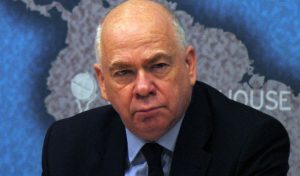 Professor Sir Lawrence Freedman is Emeritus Professor of War Studies, King’s College London. He was Professor of War Studies from 1982 to 2014 and Vice-Principal from 2003 to 2013.He was educated at Whitley Bay Grammar School and the Universities of Manchester, York and Oxford. Before joining King’s he held research appointments at Nuffield College Oxford, the International Institute for Strategic Studies and the Royal Institute of International Affairs. Elected a Fellow of the British Academy in 1995 and awarded the CBE (Commander of the British Empire) in 1996, he was appointed Official Historian of the Falklands Campaign in 1997. In 2003, he was awarded the KCMG (Knight Commander of St Michael and St George). In June 2009 he was appointed to serve as a member of the official inquiry into Britain and the 2003 Iraq War.
Professor Sir Lawrence Freedman is Emeritus Professor of War Studies, King’s College London. He was Professor of War Studies from 1982 to 2014 and Vice-Principal from 2003 to 2013.He was educated at Whitley Bay Grammar School and the Universities of Manchester, York and Oxford. Before joining King’s he held research appointments at Nuffield College Oxford, the International Institute for Strategic Studies and the Royal Institute of International Affairs. Elected a Fellow of the British Academy in 1995 and awarded the CBE (Commander of the British Empire) in 1996, he was appointed Official Historian of the Falklands Campaign in 1997. In 2003, he was awarded the KCMG (Knight Commander of St Michael and St George). In June 2009 he was appointed to serve as a member of the official inquiry into Britain and the 2003 Iraq War.
He has written on international history, strategic theory and nuclear weapons issues, as well as commenting on current security issues. Among his recent books are Strategy: A History (2013), the Future of War: A History (2017), Ukraine and the Art of Strategy (2019) and, with Jeff Michaels, the 4th edition of The Evolution of Nuclear Strategy (2019). He is currently working on a book on the Politics of Command.
Professor Saul Friedländer, UCLA
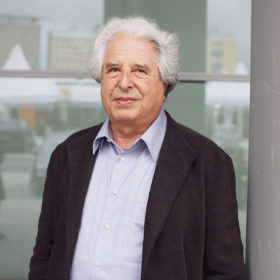 Saul Friedländer is an award-winning Israeli/American historian and Professor Emeritus in the UCLA Departments of Germanic Languages and History. He is considered one of the world’s premier historians in Holocaust studies. Among Friedlander’s awards are the Israel Prize, for history, the Geschwister-Scholl-Preis for his work, Das Dritte Reich und die Juden: MacArthur Fellowship; the Peace Prize of the German Book Trade; and for his book The Years of Extermination: Nazi Germany and the Jews, 1939-1945, Friedländer was awarded the 2008 Pulitzer Prize for General Non-Fiction as well as the 2007 Leipzig Book Fair Prize for Non-fiction. Friedländer received his degree (1955) from the Institut d’Etudes Politiques, Paris (1955) and from the University of Geneva (1963).
Saul Friedländer is an award-winning Israeli/American historian and Professor Emeritus in the UCLA Departments of Germanic Languages and History. He is considered one of the world’s premier historians in Holocaust studies. Among Friedlander’s awards are the Israel Prize, for history, the Geschwister-Scholl-Preis for his work, Das Dritte Reich und die Juden: MacArthur Fellowship; the Peace Prize of the German Book Trade; and for his book The Years of Extermination: Nazi Germany and the Jews, 1939-1945, Friedländer was awarded the 2008 Pulitzer Prize for General Non-Fiction as well as the 2007 Leipzig Book Fair Prize for Non-fiction. Friedländer received his degree (1955) from the Institut d’Etudes Politiques, Paris (1955) and from the University of Geneva (1963).
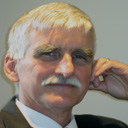 Professor Mervyn Frost, Department of War Studies, King’s College; London
Professor Mervyn Frost, Department of War Studies, King’s College; London
Professor Boaz Ganor, Lauder School of Government, Diplomacy & Strategy, IDC, Israel
Jack A. Goldstone, Director, Center for the Study of Social Change, Institutions and Policy, Schar School of Policy and Government, George Mason University
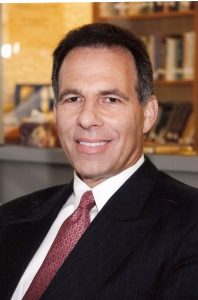 Jack A. Goldstone (PhD Harvard 1981) is the Hazel Professor of Public Policy in the Schar School of Policy and Government at George Mason University. A leading expert on revolutions and social protest, he has also written about democracy and economic history. Goldstone has received support from the Guggenheim, Carnegie, Mellon, MacArthur, and Koch Foundations, the American Council of Learned Societies and the US Institute of Peace. He is working on a book about the political and economic consequences of global population trends and another about the origins of modern economic growth.
Jack A. Goldstone (PhD Harvard 1981) is the Hazel Professor of Public Policy in the Schar School of Policy and Government at George Mason University. A leading expert on revolutions and social protest, he has also written about democracy and economic history. Goldstone has received support from the Guggenheim, Carnegie, Mellon, MacArthur, and Koch Foundations, the American Council of Learned Societies and the US Institute of Peace. He is working on a book about the political and economic consequences of global population trends and another about the origins of modern economic growth.
Dr Martin Horton-Eddison, Cardiff University
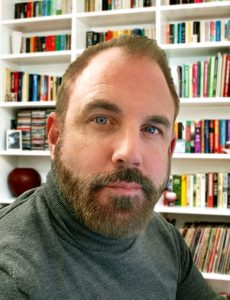 Martin is a Lecturer in International Relations at Cardiff University. He has a PhD in International Politics (Swansea, 2019), and Masters (Distinction, Hull, 2015) in International Relations with a focus on the Middle East. His teaching includes Critical War and Military Studies, International Relations Theory, Global Governance, and Global Public Health. Broadly a regime theorist, Martin is a leading authority on global responses to criminal activity on the ‘Dark Net’, the strategic application of shutting down undesirable activity online, and on UN-derived internet policy guidance. He has also researched Daesh’s use of the internet as a source of intelligence for states, and is a regular contributor to Jane’s Intelligence Review.
Martin is a Lecturer in International Relations at Cardiff University. He has a PhD in International Politics (Swansea, 2019), and Masters (Distinction, Hull, 2015) in International Relations with a focus on the Middle East. His teaching includes Critical War and Military Studies, International Relations Theory, Global Governance, and Global Public Health. Broadly a regime theorist, Martin is a leading authority on global responses to criminal activity on the ‘Dark Net’, the strategic application of shutting down undesirable activity online, and on UN-derived internet policy guidance. He has also researched Daesh’s use of the internet as a source of intelligence for states, and is a regular contributor to Jane’s Intelligence Review.Martin is cryptomarket project lead at the Global Drug Policy Observatory. In this capacity, he has presented research to the UK Home Office, at the International Institute for Strategic Studies, and at the United Nations Office on Drugs and Crime.
Dr Hussein Ibish, Arab Gulf States Institute, Washington DC, USA
Professor Rusi Jaspal, University of Brighton
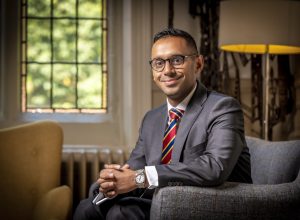
Rusi Jaspal is Pro Vice-Chancellor for Research and Knowledge Exchange and a Professor of Psychology at the University of Brighton in the United Kingdom. He is also a Chartered Psychologist and Fellow of the British Psychological Society. Professor Jaspal has conducted extensive research into the psychological aspects of antisemitism and anti-Zionism, the construction of Israeli national identity, and intergroup relations in Israel and societies with Jewish minority communities. Rusi Jaspal has also written several articles on aspects of identity in Iran and Lebanon, focusing on the effects of economic and political instability. Rusi Jaspal is the author of Antisemitism and Anti-Zionism: Representation, Cognition and Everyday Talk (Routledge, 2014).
Sir John Jenkins
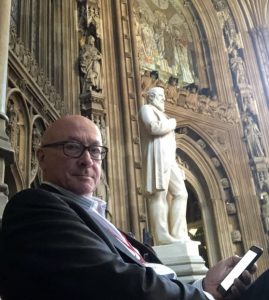
Sir John is currently a Senior Fellow at Policy Exchange, the London-based think tank, for whom he has written extensively on Islamism and extremism more generally. Between 1980 and 2015 he served as a British diplomat, initially in Abu Dhabi (1983-86), Malaysia (1989-92) and Kuwait (1995-98) before being appointed Ambassador to Burma (1999-2002). He was subsequently HM Consul-General, Jerusalem (2003-06), Ambassador to Syria (2006-07), FCO Director for the Middle East and North Africa (2007-09), Ambassador to Iraq (2009-11), Special Representative to the National Transitional Council and subsequently Ambassador to Libya (2011) and Ambassador to the Kingdom of Saudi Arabia (2012-2015). He took an active part in Sir John Chilcott’s Iraq Inquiry and in March 2014 was asked by the then Prime Minister, David Cameron, to lead a Policy Review into the Muslim Brotherhood and Political Islamism. Until his departure from the FCO he was the government’s senior diplomatic Arabist. After leaving the FCO, he was Executive Director of The Institute for Strategic Studies – Middle East (2015-2017) and a Senior Fellow at the Yale Jackson Institute for Global Affairs (2017), teaching courses on Middle Eastern Politics. Sir John holds a BA (Double First Class Honours), MA and PhD from Jesus College, Cambridge. He also studied at The School of Oriental and African Studies in London (Arabic and Burmese) and through the FCO with the London and Ashridge Business Schools. He is an alumnus of the Salzburg Seminar. He has written for The Guardian, The Times, The Spectator, The New Statesman, Al Arabiya and Arab News.
Professor Daniel C. Kurtzer, Princeton University
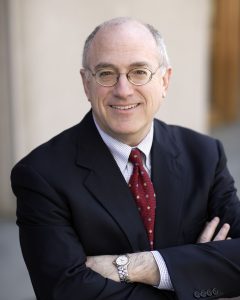 Daniel C. Kurtzer is the S. Daniel Abraham Professor of Middle East Policy Studies at Princeton University’s Woodrow Wilson School of Public and International Affairs. During a 29-year career in the U.S. Foreign Service, Ambassador Kurtzer served as the United States Ambassador to Israel and as the United States Ambassador to Egypt. He was also a speechwriter and member of the Secretary of State George Shultz’s Policy Planning Staff; and served as Deputy Assistant Secretary for Near Eastern Affairs and as Principal Deputy Assistant Secretary for Intelligence and Research. Kurtzer is the co-author of Negotiating Arab-Israeli Peace: American Leadership in the Middle East, co-author of The Peace Puzzle: America’s Quest for Arab-Israeli Peace, 1989-2011, and editor of Pathways to Peace: America and the Arab-Israeli Conflict. Ambassador Kurtzer received his Ph.D. in political science from Columbia University.
Daniel C. Kurtzer is the S. Daniel Abraham Professor of Middle East Policy Studies at Princeton University’s Woodrow Wilson School of Public and International Affairs. During a 29-year career in the U.S. Foreign Service, Ambassador Kurtzer served as the United States Ambassador to Israel and as the United States Ambassador to Egypt. He was also a speechwriter and member of the Secretary of State George Shultz’s Policy Planning Staff; and served as Deputy Assistant Secretary for Near Eastern Affairs and as Principal Deputy Assistant Secretary for Intelligence and Research. Kurtzer is the co-author of Negotiating Arab-Israeli Peace: American Leadership in the Middle East, co-author of The Peace Puzzle: America’s Quest for Arab-Israeli Peace, 1989-2011, and editor of Pathways to Peace: America and the Arab-Israeli Conflict. Ambassador Kurtzer received his Ph.D. in political science from Columbia University.
Professor Massimo La Torre, Department of Law, Università di Catanzaro, Italy
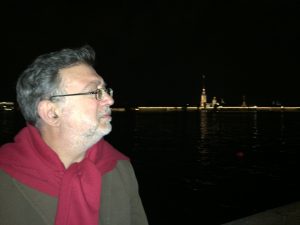
Massimo La Torre is Professor of Philosophy of law at the University of Catanzaro, Italy, and a visiting professor of European law at the University of Tallinn, Estonia. He received his Ph. D. at the European University Institute of Florence and studied law and political science at the University of Messina and at the Johns Hopkins University, Bologna Center. Prof. La Torre taught in Florence, Bologna and Murcia. He held numerous visiting professorial fellowships at European and American universities, and he was fellow of the Alliance Française, the Consiglio Nazionale delle Ricerche, the British Council and the Alexander von Humboldt Foundation. In 2009 La Torre was honoured with the Research Award of the Alexander von Humboldt Foundation.
In the past 20 years Professor La Torre has consistently commented on important problems of law philosophy and political philosophy. In books and essays he delivered internationally renowned contributions on questions of subjective rights, sovereignty, freedom, rule of law and democracy. Among his publications shall be mentioned exemplarily: Norme, istituzioni, valori [Norms, Institutions, Values] (Laterza ³2008); La lucha contra el derecho subjetivo [The Fight against Subjective Rights] (Dykinson 2008); Constitutionalism and Legal Reasoning (Kluwer 2007). His latest book is: Il diritto contro se stesso (Olschki, 2020)
Aaron David Miller
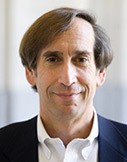
Aaron David Miller is a senior fellow at the Carnegie Endowment for International Peace, focusing on U.S. foreign policy. He has written five books, including his most recent, The End of Greatness: Why America Can’t Have (and Doesn’t Want) Another Great President (Palgrave, 2014) and The Much Too Promised Land: America’s Elusive Search for Arab-Israeli Peace (Bantam, 2008). He received his PhD in Middle East and U.S. diplomatic history from the University of Michigan in 1977.
Between 1978 and 2003, Miller served at the State Department as an historian, analyst, negotiator, and advisor to Republican and Democratic secretaries of state, where he helped formulate U.S. policy on the Middle East and the Arab-Israel peace process, most recently as the senior advisor for Arab-Israeli negotiations. He also served as the deputy special Middle East coordinator for Arab-Israeli negotiations, senior member of the State Department’s policy planning staff, in the Bureau of Intelligence and Research, and in the office of the historian. He has received the department’s Distinguished, Superior, and Meritorious Honor Awards.
Miller is a member of the Council on Foreign Relations, and formerly served as resident scholar at the Georgetown Center for Strategic and International Studies. He has been a featured presenter at the World Economic Forum and leading U.S. universities. Between 2003 and 2006 he served as president of Seeds of Peace, a nonprofit organization dedicated to empowering young leaders from regions of conflict with the leadership skills required to advance reconciliation and coexistence. From 2006 to 2019, Miller was a public policy scholar; vice president for new initiatives, and director of the Middle East program at the Woodrow Wilson International Center for Scholars.
Miller is a global affairs analyst for CNN. His articles have appeared in the New York Times, Washington Post, Politico, Foreign Policy, USAToday, and CNN.com. He is a frequent commentator on NPR, BBC, and Sirius XM radio.
Dr Francesco Motta
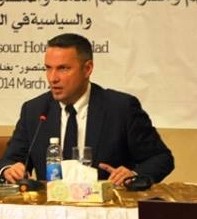
Francesco Motta is the Chief of the Asia Pacific, Middle East and North Africa Branch of the United Nations High Commissioner for Human Rights (OHCHR) in Geneva. He has two doctoral degrees, one in Law (Aust. National U.) specializing in IHL and the other in Classical and Near Eastern Archaeology (U. Sydney).
Dr Motta has almost 30 years professional experience as a lawyer, Member/Judge of the Refugee Review Tribunal (Australia), legal/policy adviser to the Minister for Immigration (Australia), project manager for UNHCR (Sudan, Egypt and Nepal), legal officer for UNRWA (Palestine), diplomat for the Australian Government (WTO), and as Representative of the High Commissioner for Human Rights (Palestine), senior human rights officer and head of regional office (UNAMA) and Representative of the High Commissioner for Human Rights and Director of Human Rights Office of UNAMI (Iraq). He has worked for the United Nations in the field of human rights in the Middle East for the past 20 years.
Dr Motta specializes in IHL/Laws of Armed Conflict and refugee law, particularly the protection of civilians and human rights in armed conflict, new asymmetric conflicts, prevention and early warning, terrorism, and States in transition. He has several publications on IHL, IHRL, and Refugee law.
Dr Joanne Murphy, Queen’s University
 Dr Joanne Murphy is Reader in Leadership and Organisational Change in Queen’s University’s Management School and Co-Director of the Centre for Leadership, Ethics and Organisation. She is also a Fellow of the Senator George J. Mitchell Institute for Global Peace, Security and Justice and a Senior Fellow of Northern Ireland’s policy Think Tank – Pivotal. Her research explores leadership, change and organisational development in political volatility, including environments affected by ethno-political conflict. She has worked extensively with business, government, not for profits and police and security organisations to build leadership capacity, management change and achieve resilience. Her latest book is ‘Management and War: How Organisations Navigate Conflict and Build Peace’(Palgrave Macmillan, 2020)
Dr Joanne Murphy is Reader in Leadership and Organisational Change in Queen’s University’s Management School and Co-Director of the Centre for Leadership, Ethics and Organisation. She is also a Fellow of the Senator George J. Mitchell Institute for Global Peace, Security and Justice and a Senior Fellow of Northern Ireland’s policy Think Tank – Pivotal. Her research explores leadership, change and organisational development in political volatility, including environments affected by ethno-political conflict. She has worked extensively with business, government, not for profits and police and security organisations to build leadership capacity, management change and achieve resilience. Her latest book is ‘Management and War: How Organisations Navigate Conflict and Build Peace’(Palgrave Macmillan, 2020)
Professor Ilan Peleg, Charles A. Dana Professor of Government & Law, Lafayette College
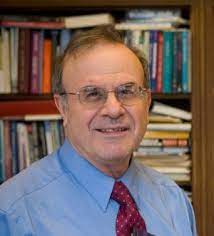
Professor Ilan Peleg is a prolific scholar, specializing in Middle East politics (particularly Israeli foreign and domestic affairs, and the Arab Spring), but also in majority-minority relations around the world, human rights, US foreign policy, and censorship and freedom of expression.
He is a former president of the Association for Israel Studies and the Founding Editor-in-Chief of Israel Studies Forum (now Review), the AIS’ scholarly journal. Among his 15 books are Democratizing the Hegemonic State (2007) and Israel’s Palestinians: The Conflict Within (2011, with D. Waxman), both published by Cambridge University Press, and Human Rights in the West Bank and Gaza: Legacy & Politics (Syracuse, 1995; Choice Award for Outstanding Scholarship, 1996). Other books include a political biography of Menachem Begin, a book on the foreign policy of George W. Bush and Neoconservatism, a volume on worldwide censorship, and an edited book entitled Victimhood Discourse in Contemporary Israel (2019). Peleg has appeared in such venues as CNN, Voice of America, and National Public Radio, and served as a visiting scholar at Harvard Law School’s Human Rights Program, Oxford’s St. Antony College, Princeton’s Middle East Program, and the University of Pennsylvania’s Judaic Studies Center.
Professor Derek Penslar, Department of History, Harvard University

Derek Penslar is the William Lee Frost Professor of Jewish History. His research specialties are the history of modern European Jewry, Zionism, and the state of Israel. Penslar’s books include Zionism and Technocracy: The Engineering of Jewish Settlement in Palestine, 1870-1918 (1991, Hebrew version 2001); In Search of Jewish Community: Jewish Identities in Germany and Austria, 1918-1933 (1998, co-edited with Michael Brenner); Shylock’s Children: Economics and Jewish Identity in Modern Europe (2001); Orientalism and the Jews (co-edited with Ivan Kalmar, 2004); Contemporary Antisemitism: Canada and the World (2005); Israel in History: The Jewish State in Comparative Perspective (2006); The Origins of the State of Israel 1882-1948: A Documentary History (with Eran Kaplan, 2011); and Jews and the Military: A History (2013). Penslar’s book Theodor Herzl: The Charismatic Leader will be published early next year in Yale University Press’ “Jewish Lives” series. He is currently writing a book titled Zionism: An Emotional State, for Rutgers University Press’ series on Keywords in Jewish Studies. Penslar is co-editor of The Journal of Israeli History and is a fellow of the Royal Society of Canada and president of the American Academy for Jewish Research.
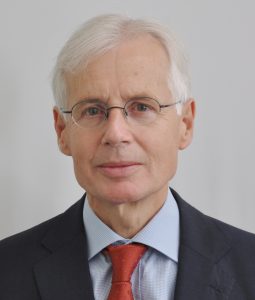 Sir Tom Philips KCMG .
Sir Tom Philips KCMG .
A consultant, and a governance adviser with the UK government’s Stabilisation Unit. In his main career as a British diplomat, Tom’s postings included serving as Ambassador to the Kingdom of Saudi Arabia, as Ambassador to Israel, and as High Commissioner to Uganda. Since retiring from the Foreign and Commonwealth Office he has also worked as Director of the Centre for the Study of Modern Slavery at St Mary’s University and Commandant of the Ministry of Defence’s Royal College of Defence Studies, as well as international adviser to the Prince’s Charities’ International Sustainability Unit, and adviser to the business intelligence company GPW Ltd. Tom is a member of the Council of the Lord Kitchener National Memorial Fund; a member of RAND Europe’s Council of Advisors; and a Trustee of the Youth Forward Initiative. Tom’s publications include several articles on the Middle East (e.g. on Israeli/Palestinian conflict in Prospect, Aug 2012 and Sept 2013).

Christian Pihet is professor of Social and Political Geography at the University of Angers (Western France). Born 1952 in Algeria, then a French «département» from a civil servant family who settled there in 1949, and living in France since 1955, he studied Geography and History at the University of Poitiers (1972/77) with a special interest in Geopolitics and electoral Geography.
Christian has been teaching and researching in those fields for nearly 30 years. He was also a visiting professor in Korce (Albania), Lodz (Poland), Bayreuth (Germany), Johns Hopkins and Appalachian State University (USA), Szeged (Hungary) and Bir Zeit university at Ramallah.
Christian wrote five books and a great number of papers in academic journals. His interest in the Middle East brought him to be a co-organizer of a symposium on peace projects in partnership of «Two nations, two States». Recently, Christian was appointed to the Angers council of economic development.
Professor Jonathan Riley, Department of Philosophy, Tulane University, USA
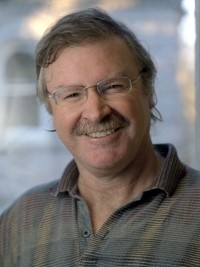
Deputy President, Justice Elyakim Rubinstein, Israel Supreme Court, Jerusalem, Israel
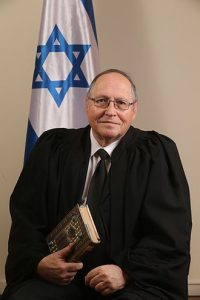
Elyakim Rubinstein is a former Deputy President of the Israeli Supreme Court. Beforehand, he served as the Legal Advisor to the Israeli Government (1997-2004). Rubinstein, a former diplomat civil servant, has had an influential role in that country’s internal and external affairs, most notably in helping to shape its peace treaties with Egypt and Jordan. He graduated cum laude from the Hebrew University in Jerusalem, with Bachelor’s degrees in Hebrew Language and Arabic Literature and Language in 1967 and in Law in 1969. Obtained a Master’s degree cum laude in Contemporary Jewry in 1974. Justice Rubinstein is the recipient of the Gabriel Peace Prize for his part in the Peace Treaty with Jordan. He was awarded honorary doctorates by Yeshiva University in New York, the Jewish Theological Seminary in New York, and Bar-Ilan University. Justice Rubinstein has written books and articles on the subject of the Israel Supreme Court, public law in Israel, the history of Israel during the British Mandate, the history of the Arab-Israeli Conflict, and the peace process. He taught at Bar-Ilan University, Tel Aviv University and the Hebrew University of Jerusalem. Justice Rubinstein is married to Miriam, Former Deputy State Attorney. They have four daughters and eleven grandchildren.
Professor Isabell Schierenbeck, School of Global Studies, University of Gothenburg, Sweden
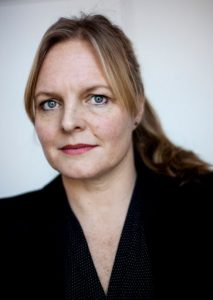
Isabell Schierenbeck is Professor of Political Science at the School of Global Studies (SGS), University of Gothenburg. Her main research fields are public administration, migration (policy and practice), international development cooperation, as well as Middle Eastern and Israeli politics. She has a long-lasting interest in research ethics and safety, and her most recent publication is Safer Field Research in the Social Sciences. A Guide to Human and Digital in Hostile Environments (Grimm, J. et al. 2020, SAGE). Schierenbeck is frequently consulted as an expert commentator on Middle Eastern/Israeli politics for Swedish radio, TV and the daily press.
Professor Avrom Sherr, University of London

Avrom Sherr, Professor Emeritus, Institute of Advanced Legal Studies, University of London. He was Director of the Institute of Advanced Legal Studies from 2004 to 2012. He joined the Institute in 1995 as the founding Woolf Professor of Legal Education, a research chair. Prior to joining the IALS, after teaching at the University of Warwick for 16 years, he was the first Alsop Wilkinson Professor of Law at the University of Liverpool and Director of the Centre for Business and Professional Law there. He qualified as a solicitor in 1974 and worked in commercial litigation at Coward Chance till 1980. From 1988 to 2012 he was also Director of Training at Macfarlanes.
Avrom Sherr is the principal architect of a system of assessment of legal competence known as Independent Peer Review. Since 2002 this has been used as the system for assessment of the quality of publicly funded work in the UK, ensuring the quality of legal services received by the public, and he leads the operation of this work.
Avrom Sherr’s main research interests have been the development of legal education, the work of the legal profession, ethics in professional work and the provision of legal services. He is currently Chair of the Hamlyn Trust and the Advice Quality Standards Project Committee. Recent work includes advising Georgia Legal Aid and the Chinese Ministry of Justice in relation to Legal Aid and the maintenance of quality in legal work; ethical research for Save The Children and safeguarding for the UKRI GCRF Accelerate Hub.
 Professor Colin Shindler, Politics, SOAS (emeritus)
Professor Colin Shindler, Politics, SOAS (emeritus)
Joel Singer
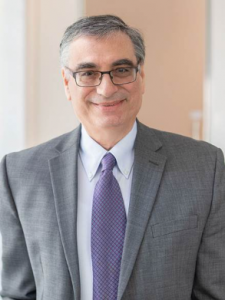 Joel Singer served as Legal Adviser of the Israel Ministry of Foreign Affairs and, previously, Director of the International Law Department of the Israel Defense Forces. From 1973 over a 25-year period, Singer worked for both right-wing Likud governments and left-wing Labor governments. Singer was a member of Israeli delegations negotiating peace treaties and other agreements with all of Israel’s Arab neighbors, including Egypt (the 1979 Israel-Egypt peace treaty), Lebanon, Syria and the Palestinians (the Oslo Accords). Singer currently practices law as a partner in the Washington, DC office of an international law firm.
Joel Singer served as Legal Adviser of the Israel Ministry of Foreign Affairs and, previously, Director of the International Law Department of the Israel Defense Forces. From 1973 over a 25-year period, Singer worked for both right-wing Likud governments and left-wing Labor governments. Singer was a member of Israeli delegations negotiating peace treaties and other agreements with all of Israel’s Arab neighbors, including Egypt (the 1979 Israel-Egypt peace treaty), Lebanon, Syria and the Palestinians (the Oslo Accords). Singer currently practices law as a partner in the Washington, DC office of an international law firm.
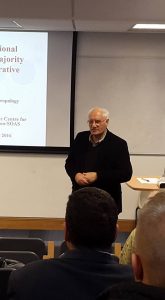 Professor Sammy Smooha, Faculty of Social Sciences, University of Haifa, Israel (emeritus)
Professor Sammy Smooha, Faculty of Social Sciences, University of Haifa, Israel (emeritus)
Professor Ehud R Toledano, Department of Middle East and African History, Tel Aviv University, Israel
Joe Whittaker, Criminology, Swansea University
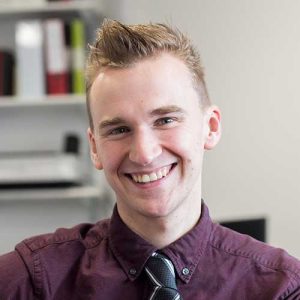 Joe is a lecturer in Cyber Threats at Swansea University. His PhD analysed the online behaviours of Islamic State terrorists in the US from the years 2012-2018, conducted as a joint degree with Swansea University and Leiden University. He has also researched how social media platforms’ recommendation systems promote and amplify extreme far-right content, as well as publishing on topics such as counter-narratives and extremist video games.
Joe is a lecturer in Cyber Threats at Swansea University. His PhD analysed the online behaviours of Islamic State terrorists in the US from the years 2012-2018, conducted as a joint degree with Swansea University and Leiden University. He has also researched how social media platforms’ recommendation systems promote and amplify extreme far-right content, as well as publishing on topics such as counter-narratives and extremist video games.
Joe is a research fellow at the International Centre for Counter-Terrorism in the Hague and has frequently presented his research to policymakers and practitioners
Professor Ruth Wodak, Department of Linguistics and English Language, Lancaster University and The University of Vienna
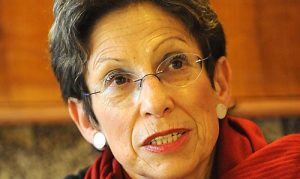 Ruth Wodak is Emerita Distinguished Professor of Discourse Studies at Lancaster
Ruth Wodak is Emerita Distinguished Professor of Discourse Studies at Lancaster
University, UK, and affiliated to the University of Vienna. Besides various other prizes, she was awarded the Wittgenstein Prize for Elite Researchers in 1996, an Honorary Doctorate
from University of Örebro in Sweden in 2010, and an Honorary Doctorate from Warwick University in 2020. She is past-President of the Societas Linguistica Europaea. 2011, she was awarded the Grand Decoration of Honour in Silver for Services to the Republic of Austria, and 2018, the Lebenswerk Preis for her lifetime achievements, from the Austrian Ministry for Women’s Affairs. She is member of the British Academy of Social Sciences and member of
the Academia Europaea. In March 2020, she became Honorary Member of the Senate of the University of Vienna. She is member of the editorial board of a range of linguistic journals and co-editor of the journals Discourse and Society, Critical Discourse Studies, and Language and Politics.
Dr. Reuven (Ruvi) Ziegler, School of Law, University of Reading
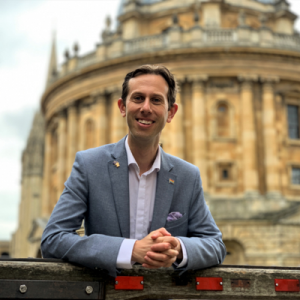 Dr. Reuven (Ruvi) Ziegler teaches at the University of Reading School of Law, where he is the Director of Postgraduate Taught Programmes and co-Chair of the LGBT+ staff network. Ruvi is an Associate Academic Fellow of the Honourable Society of the Inner Temple; Research Associate of the Refuge Studies Centre, University of Oxford; Editor of the Reporter and Co-convenor of the Migration and Asylum Section of the Society of Legal Scholars; Senior Research Associate of the Refugee Law Initiative (Institute for Advance Legal Study, University of London) and Editor-in-Chief of its Working Paper Series. He is a Visiting Professor at the University of Johannesburg and at the Hebrew University in Jerusalem. Ruvi’s public engagements include serving as Chair of the Board of Trustees of New Europeans Association UK; Chair of the Oxford European Association; A Britain in Europe academic expert; and an advisory council member of Rene Cassin. Previously, Ruvi was a visiting researcher at Harvard Law School’s Immigration and Refugee Clinic and with the Human Rights Program; and a Tutor in Public International Law at Oxford. Ruvi is the author of Voting Rights of Refugees (Cambridge University Press, 2017). Ruvi’s areas of research interest include International Refugee Law, Electoral Rights and citizenship, Comparative Constitutional Law, and International Humanitarian Law. Ruvi holds DPhil, MPhil, and BCL degrees from Oxford University. Follow Ruvi on twitter @ruviz
Dr. Reuven (Ruvi) Ziegler teaches at the University of Reading School of Law, where he is the Director of Postgraduate Taught Programmes and co-Chair of the LGBT+ staff network. Ruvi is an Associate Academic Fellow of the Honourable Society of the Inner Temple; Research Associate of the Refuge Studies Centre, University of Oxford; Editor of the Reporter and Co-convenor of the Migration and Asylum Section of the Society of Legal Scholars; Senior Research Associate of the Refugee Law Initiative (Institute for Advance Legal Study, University of London) and Editor-in-Chief of its Working Paper Series. He is a Visiting Professor at the University of Johannesburg and at the Hebrew University in Jerusalem. Ruvi’s public engagements include serving as Chair of the Board of Trustees of New Europeans Association UK; Chair of the Oxford European Association; A Britain in Europe academic expert; and an advisory council member of Rene Cassin. Previously, Ruvi was a visiting researcher at Harvard Law School’s Immigration and Refugee Clinic and with the Human Rights Program; and a Tutor in Public International Law at Oxford. Ruvi is the author of Voting Rights of Refugees (Cambridge University Press, 2017). Ruvi’s areas of research interest include International Refugee Law, Electoral Rights and citizenship, Comparative Constitutional Law, and International Humanitarian Law. Ruvi holds DPhil, MPhil, and BCL degrees from Oxford University. Follow Ruvi on twitter @ruviz

